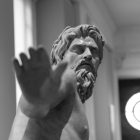 PRAGMATISM
PRAGMATISM
 POST-KANTIAN PHILOSOPHY IN THE NINETEENTH CENTURY
POST-KANTIAN PHILOSOPHY IN THE NINETEENTH CENTURY
POST-KANTIAN PHILOSOPHY IN THE NINETEENTH CENTURY
 FORMS OF PHILOSOPHICAL WRITING
FORMS OF PHILOSOPHICAL WRITING
FORMS OF PHILOSOPHICAL WRITING
 BIOETHICS
BIOETHICS
BIOETHICS
 HOW DO YOU DO PHILOSOPHY?
HOW DO YOU DO PHILOSOPHY?
HOW DO YOU DO PHILOSOPHY?
 AESTHETICS
AESTHETICS
AESTHETICS
 QUANTUM LOGIC
QUANTUM LOGIC
QUANTUM LOGIC
 PHILOSOPHY OF RELIGION
PHILOSOPHY OF RELIGION
PHILOSOPHY OF RELIGION
 THE ARGUMENTATIVE PAPER
THE ARGUMENTATIVE PAPER
THE ARGUMENTATIVE PAPER
 PREDICATE CALCULUS (PREDICATE LOGIC)
PREDICATE CALCULUS (PREDICATE LOGIC)
PREDICATE CALCULUS (PREDICATE LOGIC)
 RATIONALISM
RATIONALISM
RATIONALISM
 HERMENEUTICS
HERMENEUTICS
HERMENEUTICS
 PHILOSOPHY OF LAW
PHILOSOPHY OF LAW
PHILOSOPHY OF LAW
 LIBERALISM
LIBERALISM
LIBERALISM
 WHAT IS THE “SUBJECT MATTER” OF PHILOSOPHY
WHAT IS THE “SUBJECT MATTER” OF PHILOSOPHY
WHAT IS THE “SUBJECT MATTER” OF PHILOSOPHY
Logic
Books
-
Silence: In the Age of Noise
$12.69 -
The Yoga Sutras Of Patanjali
$4.85 -
In the Unlikeliest of Places: How Nachman Libeskind Survived the Nazis, Gulags, and Soviet Communism (Life Writing, 53)
$14.68 -
How Postmodernism Serves (My) Faith: Questioning Truth in Language, Philosophy and Art
$32.00 -
Nothing & Everything: How to stop fearing nihilism and embrace the void
$6.99 -
Uncovering Greek Mythology: A Beginner’s Guide into the World of Greek Gods and Goddesses (Mythology Collection)
$29.99 -
Genome: The Autobiography of a Species in 23 Chapters
$9.99 -
Sun Tzu – The Art of War
$5.99 -
Critical Thinking & Logic Mastery – 3 Books In 1: How To Make Smarter Decisions, Conquer Logical Fallacies And Sharpen Your Thinking
$30.64 -
Thoreau’s Walden
$20.20 -
Walden (Translated): A 21st Century, Modernized Translation
$14.89 -
Straw Dogs: Thoughts on Humans and Other Animals
$10.29 -
Counter Wokecraft: A Field Manual for Combatting the Woke in the University and Beyond
$12.74 -
The Courage to Be Disliked: The Japanese Phenomenon That Shows You How to Change Your Life and Achieve Real Happiness
$19.19 -
The Dalai Lama’s Cat and the Claw of Attraction
$15.95 -
Logic: A Very Short Introduction (Very Short Introductions)
$11.95
Reexamining Spacetime Substantivalism: A Critique of Modal Arbitrariness and Determinism in Teitel’s Framework
Reexamining Spacetime Substantivalism: A Critique of Modal Arbitrariness and Determinism in Teitel’s Framework
Rule-Following and Artificial Intelligence: A Kripkean Perspective
The Eternal Coexistence of Consciousness and Spacetime: A Philosophical Inquiry
Embracing Contradiction: An In-Depth Analysis of Dialetheism
Analysis of, and Responses to Edmund Gettier’s “Is Justified True Belief Knowledge?”
The Unstable Foundation: A Critique of the Ontological Proof of God’s Existence
Meta-Modal Actuality: A Dynamic Framework for Possibility, Actualization, and Causality
Killing, Morality, and the Human Condition: A Philosophical Investigation
The Intricacy of Existence: A Philosophical Exploration of Complexity, Contingency, and Divine Agency
The Ethics of Procreation and the Rational Acceptance of Life: A Critical Engagement with Weinberg’s Argument
Imagination, Consciousness, and the Nature of the Soul: A Philosophical Inquiry
The Interplay of Karma, Rebirth, and Non-Self in Buddhist Philosophy: A Metaphysical Inquiry
Metaphysical Perspectives: A Comparative Analysis of Theism and Atheism
The Infinite Universe, Death, and the Search for Meaning: A Philosophical Exploration of Existence, the Divine, and Human Mortality
The Unconscious Artistry of Artificial Intelligence: A Modern Reflection on Spinoza’s God and the Blind Watchmaker
The Ethics of Procreation and the Rational Acceptance of Life: A Critical Engagement with Weinberg’s Argument
Terms & Concepts

Arity


































































